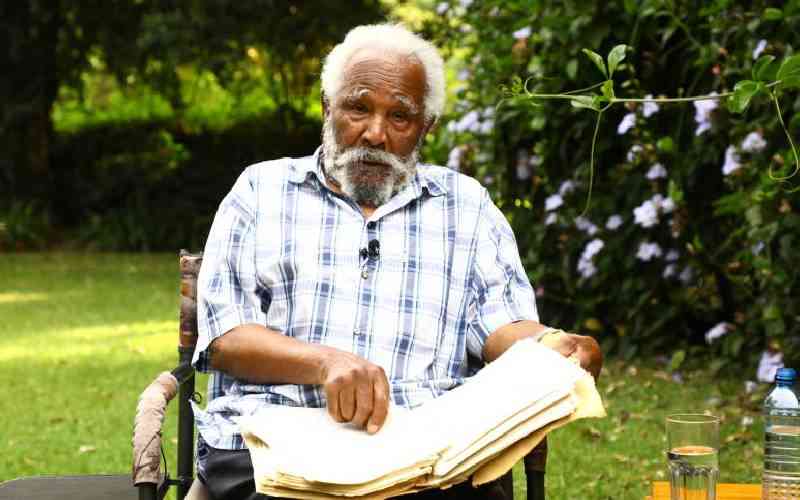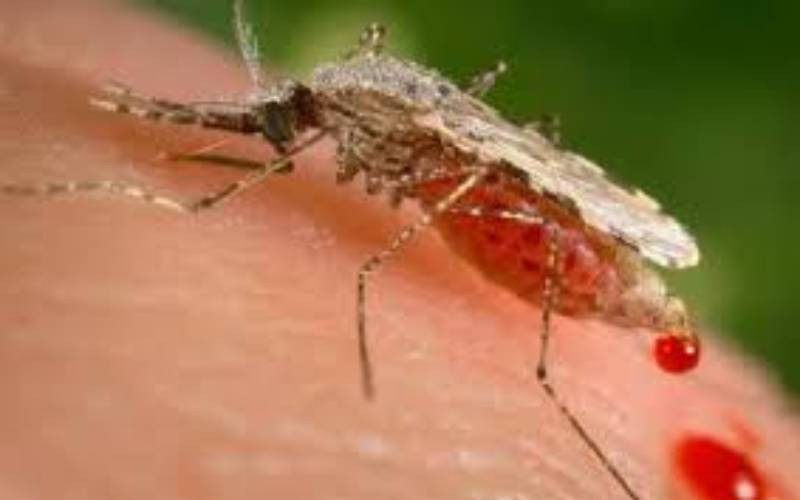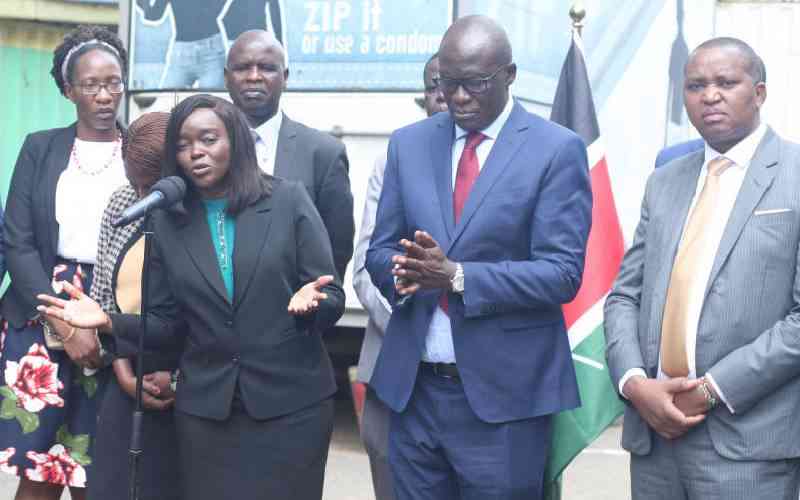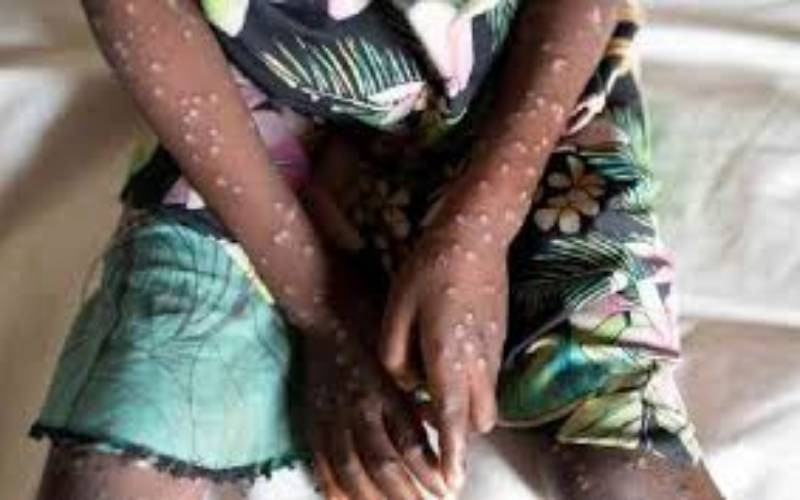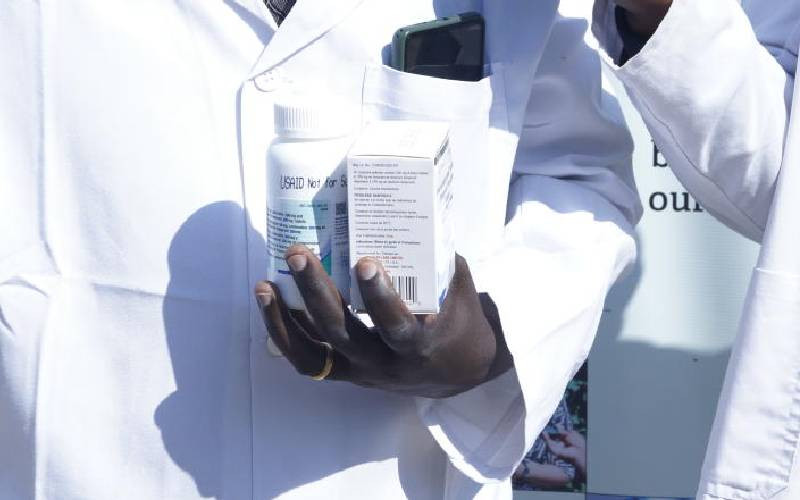
Sixty-one years ago today, Kenyans welcomed independence after the Kenyan flag was raised high and the colonial one went down at Uhuru gardens.
Ululations rent the night air, tears and embraces spread among a people who had given their all to see their country free. The physical scars were as bad as the mental ones. They stemmed from torture, rape, grief and betrayal.
As the Red Black Green and White stripped cloth of the new flag was raised many hoped the heartache, including loss of loved ones, would end. The master who treated them like children of a lesser God would finally leave.
Many books have been written about Kenyans who took to the forest to fight for their land but not so much about those that aided the struggle from outside. Hundreds supplied those in the forest with food, weapons and intelligence.
Julius Gathogo, visiting professor of oral and mission histories at the Texas -based ANCCI University, says many Kenyans fought for independence from the outside. He calls them non-combats.
“Non-combatants are the gallant fighters of independence who were not necessarily Mau Mau rebels who retreated to the forest to wage a guerrilla war against British colonialism that officially began in 1895 when Kenya became a British Protectorate and a colony in 1920,” he says.
The support from outside threatened colonialists, they had to put most Africans in concentration camps surrounded with ditches and spikes to ensure nobody left.
Many independence heroes have since died. A few have memories of the struggle among them is 96-year-old Muthee Murage, who, this year published an account of his life at the time; Mau Mau Detainee.
We meet Murage at his son’s home in Nairobi enjoying a cool breeze under a tree. Besides him on a stool is the original hand written manuscript of the book “Kizimbani”, that was translated to English.
He is excited to meet The Standard team. He introduces himself in Kiswahili. He says his communication skills were sharpened because just like many Africans during the colonial period he worked at a settler’s farm and being the only African who had gone to school on that farm, he would effortlessly communicate in Kikuyu, Kiswahili and a bit of English.
“(Nilikuwa karani kwa shamba ya mkoloni) I was a clerk at a colonialist farm where some of my relatives worked. My maternal aunt’s husband had worked there from 1911. I was a bright boy and I went to school in Kagumo in 1942. Then in 1943 I quit school and went to the settler’s farm and worked there,” he says.
One time, Jomo Kenyatta who would later become Kenya’s first president, held a meeting at Ruringu stadium in Nyeri. Muthee wanted to be part of that historic event. He lied to his employer that he wanted to go home and check on his family. “The settler denied me permission because the news that Kenyatta was going to be at Ruringu stadium had spread. He refused but I still went. Some of the things Kenyatta said pumped so much energy in me while some brought fear,” he recalls.
Kenyatta had a white bodyguard, during his speech he asked his bodyguard his family name, when the bodyguard responded, Kenyatta laughed then told his audience that his guard came from a poor family. He said despite that when mzungus came to Africa they treated Africans like lesser beings.
Muthee just like other Africans left the meeting fully charged, ready to fight for independence. They would later take an oath. Some went to the forest while others were left behind to support from outside.
Prof Julius Gathogo says at the national level were figures like Jomo Kenyatta, Jaramogi Oginga Odinga, Tom Mboya, Paul Ngei, Achieng Oneko, Bildad Kaggia, Kung’u Karumba, Fred Kubai and others who used trade unions as in the case of Mboya, church platforms as in the case of Kaggia, and political parties to inspire the freedom spirit.
Such leaders would inspire the combatants. Some leaders such as Paul Ngei used a Kamba newspaper called Wasya wa Mukamba (meaning “The Voice of Kamba’’ ethnic group) to inform and inspire the freedom movement.
Kenyatta was linked to Muiguithania (meaning Reconciler) newspaper, which had been banned by the colonial government. The newspapers cheered on the Kikuyu, Meru, Embu and Kamba who were engaging in the guerrilla warfare, known as the Mau Mau.
“There were people from the Akamba community, both men and women, who joined Mt Kenya forest as fellow fighters alongside the Kikuyu, Embu and Meru. A case in point is a Kamba lady called Kahonoki (meaning ‘saviour’ or the ‘converted’) who joined Njukiini forest fighters, in present day Kirinyaga County, in October 1953,” Gathogo reveals.
She came from present day Machakos County. In an interview with a fellow combatant, Major Judge (real name Milton Munene Gachau), it came out clearly that she also had a brother by name Musyoka who was living in Mwea, and who was playing a useful role as a non-combatant.
“Another critical non-combatant was a Nyeri-born, Gakaara wa Wanjau, who, like Paul Ngei, was gifted in writings that empowered both the combatants and non-combatants. Such characters were public educators. Gakaara wa Wanjau, in particular, wrote books, such as: The Unity of the Kikuyu, and How colonialism was doing harm. These were powerful tools that emboldened the populace despite the duo not retreating to the forest,” says Gathogo.
At one stage, Ngei’s paper became the most authoritative media that emboldened both combatants and the non-combatants. They took it for gospel truth in the 1940s and early 1950s, but it went down upon his arrest on 20th October 1952.
Another writer who inspired the combatants and non-combatants is Wycliffe Awori, son of a pioneer Christian convert in Western Kenya, Canon Jeremiah Awori. He was a prominent trade unionist and politician actively involved in the agitation for Kenya’s independence.
He was a committee member of the Kenya African Union [political party] and later became a member of the Legislative Council [Parliament]. He was at one point the editor of Sauti ya Mwafrica [the African Voice] newspaper.
In Nairobi, Awori met people like Chege Kibachia and Makhan Singh (both trade unionists) and others like James Gichuru with whom they formed the Kenya African Study Union (KASU) and later Kenya African Union (KAU), the forerunner to the Kenya African National Union (KANU).
Besides this, the Mau Mau war council in Nairobi designated roles for non-combatants. Fundraising topped the list, as workers who had taken Mau Mau oath were ideally supposed to provide Sh60 a month, though few made it.
Others were spies, oath administrators, food suppliers – especially men and children. Others were propagandists, who composed Mau Mau songs.
Role of women
In her biography Mau Mau Freedom fighter Dedan Kimathi’s wife the late Mukami Kimathi writes about how the colonialists used rape as a form of punishment. “… women lived with the knowledge that they could be raped any day and there was nothing they we could do about it.”
Several children were conceived from rape and it was rare to find a man, who, on returning from prison did not find his wife with a child or children he did not sire.
There were no social mechanisms to counter the stigma associated with rape, torture or any form of sexual violence. “War rape was not discussed openly, so the stigma remained. When men began coming home from the prisons and found their wives with children, products of the colonial security agencies rape, nobody was on hand to advise them not to abandon them. The women in return were trying all they could to love these children,” she writes.
Women would pretend to do their daily chores but would strategically place food, weapons, medicine and clothes in places where the Mau Mau would pick.
One of those women is Anna Wamuyu Kabubi, alias Cinda Reri. Her role was to smuggle guns for the Mau Mau. She perfected the smuggling art to an extent they ended up needing a railway wagon to transport the guns, hence the moniker.
Other outstanding women were Njoki Waicere, whom together with others, tricked and stole guns from home guards. Rebecca Njeri Kari was the leader of the women’s wing of Mau Mau while Wambui Waiyaki, who would later become Wambui Otieno, had a network of women spies.
Another woman, Muthoni Nyanjiru, together with others stood outside Kingsway Police Station (now Central Police Station), demanding the release of Harry Thuku. An agitated Nyanjiru leapt to her feet, ran to the front of the crowd, lifted her dress over her head, and cried, “You take my dress and give me your trousers. You men are cowards. What are you waiting for? Our leader is in there. Let’s get him.”
The crowd surged forward and the guards opened fire, killing hundreds of protesters including Nyanjiru.
 The Standard Group Plc is a multi-media organization with investments in media platforms spanning newspaper print
operations, television, radio broadcasting, digital and online services. The Standard Group is recognized as a
leading multi-media house in Kenya with a key influence in matters of national and international interest.
The Standard Group Plc is a multi-media organization with investments in media platforms spanning newspaper print
operations, television, radio broadcasting, digital and online services. The Standard Group is recognized as a
leading multi-media house in Kenya with a key influence in matters of national and international interest.

